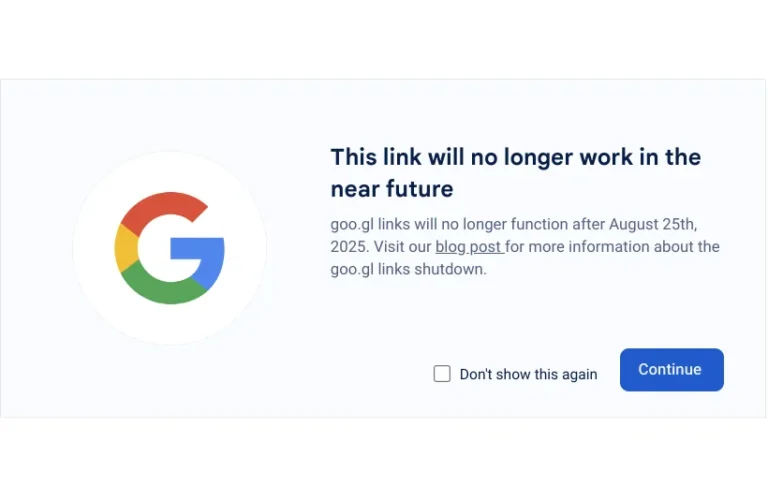As of the 25th of August in 2025, they will no longer function
With effect from the 23rd of August in this year, when a person clicks on a link that is associated with goo.gl, it may initially take them to a page that contains a notice that states the link “will no longer work in the near future” before directing them to the website that they wish to visit. The goo.gl URL shortening service was discontinued by Google in 2018, and users were no longer able to generate new links after the services were discontinued. Additionally, the company has declared that it will no longer provide maintenance for any and all goo.gl links that are currently in existence: By the 25th of August in 2025, there will be a “404 page not found” result returned by the URLs.
By presenting the aforementioned warning page to users over the course of the next year, Google is providing developers with a sufficient amount of time to transition to other shorteners. At first, it will only be visible for a certain proportion of the links that are already in existence; however, this percentage will continue to increase until it is visible for the majority of goo.gl links, if not all of them, by the time they are shut down. As a result of the firm’s warning that the interstitial warning pages can cause interruptions and prevent visitors from reaching the URL that they actually want to go to, the company is encouraging developers to alter their shortened URLs as soon as feasible.
In Google’s ever-expanding product graveyard, the goo.gl link shortener service just joined a wide variety of other products and services that have been around for quite some time. The Hangouts chat app, the Stadia cloud gaming service, and Google+, which at one point attempted to compete with Facebook can all be considered among these.

